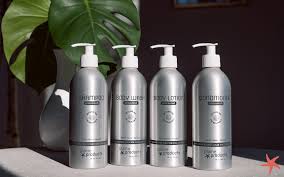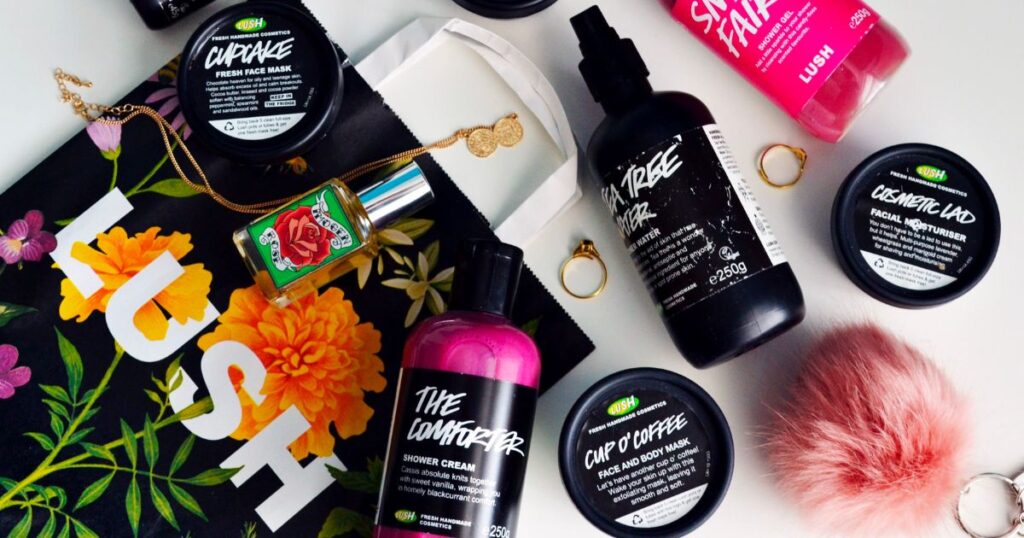
The Rise of Eco-Friendly Personal Care Brands You Need to Know
Posted on |
The personal care market is changing dramatically as individuals become more concerned about the environment and emphasize sustainability. Consumers demand goods that improve their skin, hair, and body and help the environment. Enter eco-friendly personal care firms committed to producing effective and sustainable solutions. These brands prioritize ethical sourcing, natural products, and innovative packaging to reduce their environmental effect. This guide will look at the greatest eco-friendly personal care brands and explain why they’re vital for a greener future.
What Makes a Brand Eco-Friendly?
Eco-friendly personal care brands distinguish themselves by prioritizing environmental stewardship in every stage of their production process.
- Definition and Characteristics: Eco-friendly brands emphasize responsible sourcing, cruelty-free testing, and sustainable manufacturing practices.
- Certifications and Standards: Look for certifications like USDA Organic, Leaping Bunny, and Fair Trade to identify brands committed to eco-friendly standards. These certifications ensure that products meet strict criteria for sustainability, ethics, and cruelty-free practices.
The Importance of Eco-Friendly Personal Care
Switching to eco-friendly personal care products is more than a trend; it’s a choice that benefits both the planet and personal health.
- Environmental Impact: Traditional personal care products often contain chemicals and synthetic ingredients that are harmful to the environment. Waste from non-biodegradable packaging also contributes to pollution.
- Health Benefits: Eco-friendly products generally avoid harmful chemicals, making them safer for sensitive skin and overall health.

History of Eco-Friendly Personal Care
The journey toward sustainable personal care products has been long and varied, with a few key pioneers leading the way.
- Early Pioneers: Brands like The Body Shop and Burt’s Bees set the foundation for eco-friendly personal care by prioritizing natural ingredients and ethical business practices.
- Evolution: Over the years, consumer awareness has pushed more brands to adopt eco-friendly principles, resulting in a booming market for green personal care.
Key Trends Driving Eco-Friendly Personal Care
Consumer demand is shaping the future of eco-friendly personal care brands, with certain trends playing a crucial role.
- Consumer Awareness: Today’s consumers are more informed about the environmental impact of their purchases, driving the demand for eco-friendly alternatives.
- Natural and Organic Ingredients: Many eco-conscious consumers seek out natural or organic products, avoiding synthetic chemicals and opting for ingredients that are safe for both humans and the environment.
Natural vs. Organic Personal Care Products
Understanding the difference between “natural” and “organic” is essential for making informed decisions.
- Definitions: Natural products are made from ingredients found in nature but may not always be organic, while organic products use ingredients grown without synthetic pesticides or fertilizers.
- Certifications and Labeling: Look for reliable certifications that validate a brand’s organic claims, as they signify a commitment to eco-friendly and safe product standards.
Ingredients to Look for in Eco-Friendly Products
The ingredients in eco-friendly products often come from plant-based or naturally sourced materials that are both effective and gentle.
- Common Eco-Friendly Ingredients: Aloe vera, coconut oil, shea butter, and essential oils are frequently used for their natural, nourishing properties.
- Ingredients to Avoid: Sulfates, parabens, synthetic fragrances, and phthalates are harmful to both personal health and the environment, making them ingredients to avoid in eco-friendly products.
Popular Eco-Friendly Personal Care Brands You Should Know
Here’s a closer look at some of the leading brands in eco-friendly personal care that are making a difference.
- Brand Overview: Brands like Ethique, Plaine Products, and Native use innovative methods to minimize waste, such as plastic-free packaging and refillable containers.
- Unique Offerings: These brands not only focus on sustainable practices but also offer a variety of high-quality personal care products, from shampoos and body washes to skincare and cosmetics.
How to Evaluate Eco-Friendly Brands as a Consumer
Knowing how to evaluate a brand’s eco-friendliness helps consumers make smarter, greener choices.
- Reading Labels: Familiarize yourself with ingredients and certifications on product labels to confirm eco-friendly claims.
- Questions to Ask: Ask about the brand’s sourcing practices, waste management, and carbon footprint to better understand their sustainability commitment.

The Role of Packaging in Eco-Friendly Personal Care
Packaging plays a significant role in a product’s overall environmental impact.
- Plastic Waste: Many personal care products come in plastic containers, contributing to pollution. Eco-friendly brands aim to reduce this by using sustainable packaging alternatives.
- Innovations in Packaging: Some brands are leading the way with biodegradable packaging, reusable containers, and minimalistic designs that reduce waste.
DIY and Homemade Eco-Friendly Personal Care Alternatives
For those looking to further reduce their environmental impact, DIY personal care products offer a sustainable and budget-friendly option.
- Simple Recipes: Making your products at home can be surprisingly easy. Try recipes for coconut oil-based deodorant, honey face masks, or oatmeal body scrubs.
- Advantages: DIY products allow you to control the ingredients, avoiding chemicals and packaging waste altogether.
Economic Impact of Eco-Friendly Personal Care Brands
The shift towards eco-friendly personal care is also transforming the economy.
- Market Growth: The eco-friendly personal care market is expanding as consumers shift toward sustainable options, creating opportunities for job growth and innovation.
- Supporting Local Communities: Many eco-friendly brands prioritize fair trade and support local suppliers, contributing to economic stability in their communities.
How Eco-Friendly Brands Give Back
Many eco-friendly brands incorporate social responsibility into their business models, supporting initiatives that benefit communities and the planet.
- Examples of Initiatives: Some brands plant trees, donate a portion of their profits to environmental causes, or provide resources to underserved communities.
- Impact: These initiatives showcase the brand’s commitment to a better world, encouraging consumers to support companies that prioritize giving back.
Myths About Eco-Friendly Personal Care
There are several misconceptions about eco-friendly personal care products that can deter consumers.
- Myth Busting: It’s a common misconception that eco-friendly products are always more expensive or less effective. In reality, many brands offer affordable, high-quality products.
- The Truth About Greenwashing: Greenwashing is when brands falsely market themselves as eco-friendly. Learning to spot genuine sustainability efforts is key to making ethical choices.
Future of Eco-Friendly Personal Care
What does the future hold for eco-friendly personal care? The trends point toward a greener future.
- Growth Predictions: The demand for sustainable personal care products is likely to continue growing, driven by increasing environmental awareness.
- Emerging Technologies: Innovations like biodegradable formulas, waterless products, and new plant-based ingredients are paving the way for more sustainable options.
Top 5 Eco-Friendly Personal Care Brands
As environmentally concerned consumers seek brands that share their beliefs, some personal care firms have gained recognition for their dedication to sustainability, quality, and ethical practices. Here’s a look at five prominent eco-friendly personal care brands that are creating waves in the industry.
1. Ethique

Ethique is a New Zealand-based brand noted for its zero-waste approach. They make solid bars for everything from shampoo and conditioner to facial cleansers, removing the need for plastic bottles altogether. Ethique’s products are vegan, cruelty-free, and made from sustainably produced materials, making them a popular choice among environmentally conscious consumers worldwide.
Why They Stand Out: Ethique’s dedication to plastic-free packaging has prevented millions of plastic bottles from reaching landfills. Each product bar is highly concentrated, long-lasting, and performs exceptionally well, proving that zero-waste can be high quality.
2. Plaine Products

Plaine Products is an American company that has revolutionized sustainable packaging in personal care by offering refillable aluminum bottles. The brand provides eco-friendly shampoos, conditioners, and body washes that customers can send back to be refilled once empty, reducing single-use plastic waste.
Why They Stand Out: With a convenient refill subscription service, Plaine Products makes it easy for consumers to reuse packaging. Their bottles are durable and fully recyclable, and they use natural ingredients that are free from harmful chemicals.
3. Weleda

Weleda is a long-standing leader in natural and organic personal care, with roots in Switzerland going back nearly a century. Known for its holistic approach to beauty, Weleda uses ethically sourced, organic ingredients and follows strict sustainability practices, including biodynamic farming.
Why They Stand Out: Weleda’s skincare products, like the Skin Food moisturizer, have a loyal following and are highly effective. The brand’s commitment to using pure, organic ingredients and supporting biodiversity initiatives sets it apart in the industry.
4. Native

Native is an American brand recognized for its natural deodorants, which are free from parabens, sulfates, and aluminum. Their packaging has recently transitioned to include paperboard options for select products, and they’re committed to making all products plastic-free shortly.
Why They Stand Out: Native combines efficacy and environmental conscience to provide effective and skin-friendly personal care products. They’re especially popular because they offer a variety of natural perfumes and ingredients, catering to customers with sensitive skin and unique tastes.
5. Lush Cosmetics

The Lush Cosmetics has achieved international acclaim for its handcrafted, eco-friendly products that stress ethical sourcing and sustainable packaging. Lush is recognized for its “naked” products, which are solid shampoos, conditioners, and soaps with no packaging.
Why They Stand Out: Lush’s bright, scented products are both functional and enjoyable to use. Their commitment to sustainable practices, such as ethical ingredient sourcing, cruelty-free testing, and eco-friendly packaging, has made them a top choice for ecologically aware consumers.
Conclusion
The rise of environmentally friendly personal care businesses indicates a widespread demand for a more sustainable, ethical approach to beauty and hygiene. By using goods from these innovative brands, we may get superior personal care while lowering our environmental effects. Supporting eco-friendly companies is an effective approach to help make the world a greener place, ensuring that future generations can enjoy a cleaner, healthier environment.
FAQs on Eco-Friendly Personal Care
Eco-friendly brands use sustainable ingredients, responsible packaging, and ethical practices.
Yes, eco-friendly products often avoid harmful chemicals, making them safer for your skin and health.
Look for certifications and transparent information on the brand’s website. True eco-friendly brands are transparent about their practices.
No, organic products follow strict growing practices, while natural products simply use ingredients from nature.
Many eco-friendly products are just as effective as traditional products, with the added benefit of being safer for the environment.